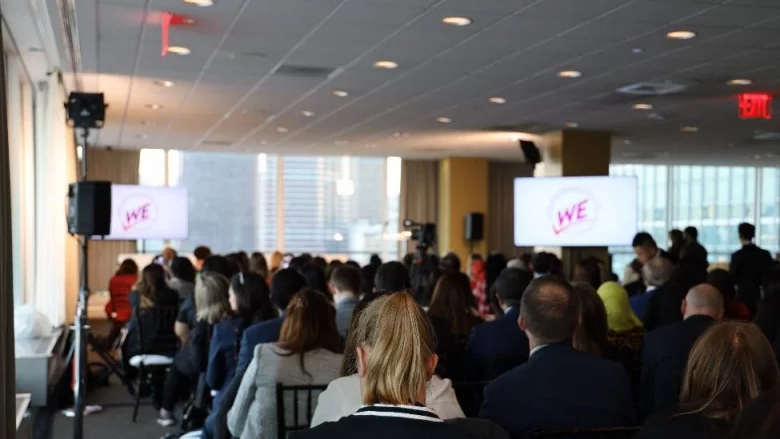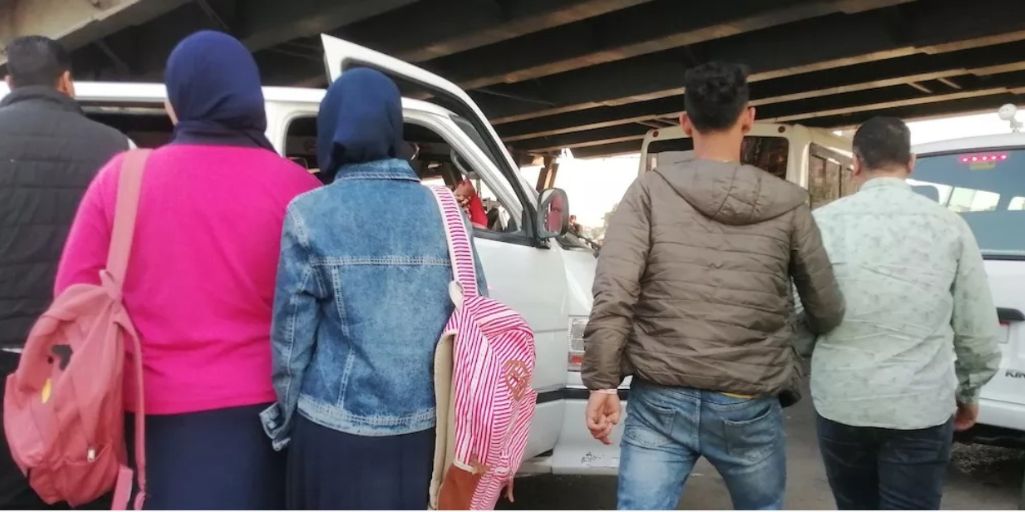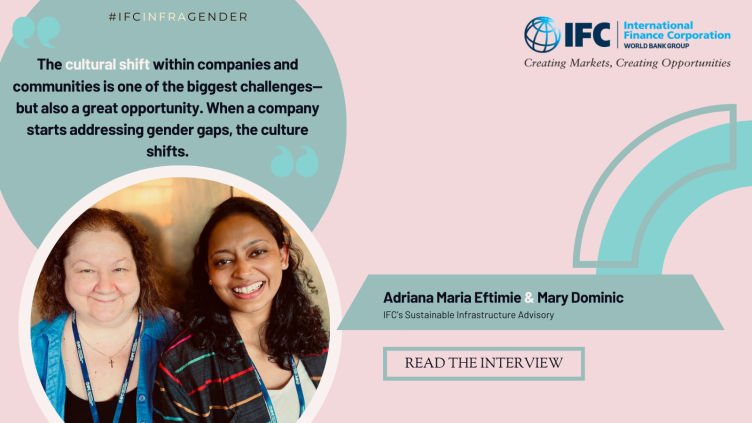Blog
Feb 8, 2018
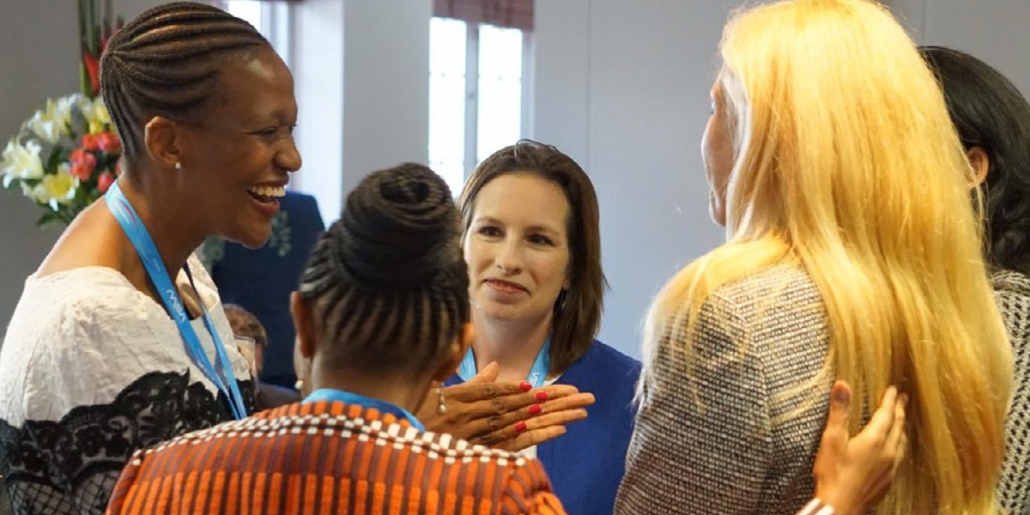
Caption goes here.
To ensure business success, infrastructure and natural resources projects need to bring clear social and economic benefits to local stakeholders. Doing so can be an opportunity for local economic development and positive impact on the communities where they operate. In Guinea, where IFC has supported local content development for a decade, the most successful suppliers began as employees on a mining project. Yet few women entrepreneurs were found who could meet the basic criteria established to participate in program activities. Consequentially, their participation was low. Guinea’s example speaks to a global truth: in communities affected by natural resources projects, women are not benefiting equitably from business operations. Very few of the jobs created go to women, meaning that they miss out on critical skills development and income generation that could enable them to catalyze new business opportunities in the local supply chain.
However increasingly, companies are acknowledging the opportunity costs of this imbalance. During the launch of the new M4Dlink Women in Resources mentoring initiative, Bill Johnston, Mine and Petroleum Minister of Western Australia, said: “When women are in the workforce; safety improves, equipment is better maintained, and workplaces are more harmonious.”
In the same spirit, Bruce Cleaver, CEO of De Beers Group has stated: “At De Beers, we recognize that we will only be able to realize our full potential by harnessing diversity of thought, skills and experience, and so I am committed to accelerating the representation of women within our organization, as well as the empowerment of women and girls in the communities in which we operate.”
At this week’s Mining Indaba in Cape Town, IFC, together with Graça Machel Trust, De Beers Group, the Government of Canada, and the International Council on Mining and Metals, hosted a session on how natural resource industries can unlock the added value women bring when they participate in the supply chain and the workforce. Along with colleagues from companies, governments, civil society and industry associations, the session explored actions to promote gender equality in the natural resource sector, emphasizing the need to move from one-off initiatives to systematic changes that create long term value. As one event participant pointed out: “Leadership matters, our leadership as individuals and the leadership that our companies, organizations and countries collectively bring is key.”
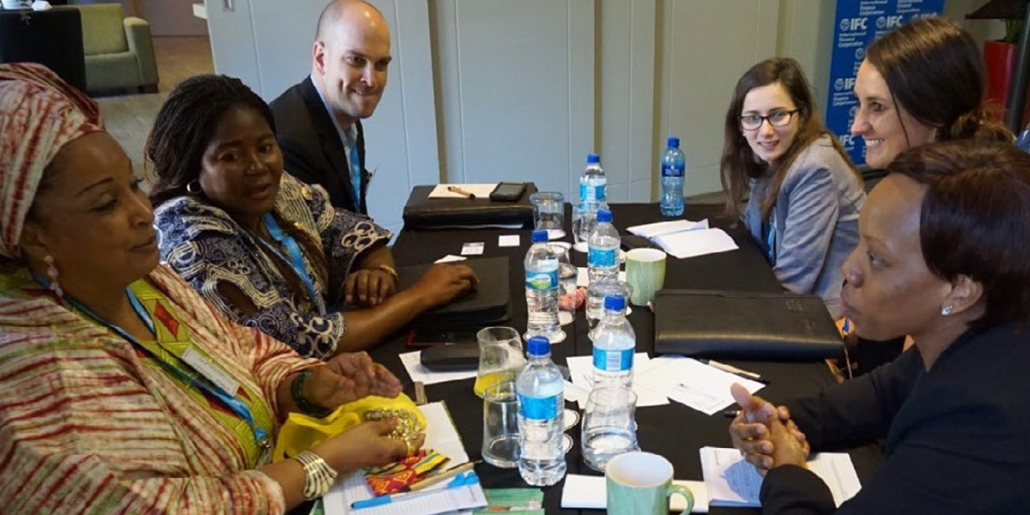
Caption goes here.
Through its foreign development assistance program, the Government of Canada made a bold public commitment to tackle barriers for women and girls when it adopted the Feminist International Assistance Policy (FIAP). This policy is helping guide IFC’s work on local content through the joint Canada-IFC Local Economic Development Program, which operates in four countries: Kenya, Ghana, Guinea and Cote d’Ivoire. The program focuses on creating economic opportunities for women in the natural resources sector by addressing barriers that hinder women’s participation in entrepreneurship and employment.
Last year, as part of the Canada-IFC initiative, IFC together with the Government of Cote d’Ivoire, GIZ and the World Bank, co-organized a national local content workshop to inform the development of a national local content policy for Cote d’Ivoire’s mining sector. Gender was a cross-cutting issue at the workshop. Discussions highlighted the opportunity gap between men and women, as well as the opportunity gap between rural women and women with higher levels of education, like engineers. Findings from a gender assessment of Cote d’Ivoire’s mining sector emphasize the importance of cultural beliefs and attitudes as key factors limiting the support for, and willingness of, women to participate in the mining sector. Cultural norms emerged as a barrier both for women’s participation in dialogue at the community level, and in employment and supply chain opportunities. Increased access to business and employment opportunities on its own will not lead to improved gender parity in natural resource industries.
The Cote d’Ivoire gender assessment demonstrates that a range of issues need to be considered: education, skills development, and financial literacy – but also an evolution in both men’s and women’s views of women’s roles in the community and the workplace. Through the FIAP, Canada acknowledges that “Gender equality cannot be achieved by women and girls in isolation. Men and boys must also challenge the traditions and customs that support and maintain gender inequalities.” This reality is only magnified when applied to the male-dominated natural resource industries. As one women working for a mining company in South Africa put it, “We need men that are strong enough to help women”. Professional networks for women in mining can be important. Christine Logbo-Kossi, Head of Women in Mining in Cote d’Ivoire, says that she wants to “de-mystify mining for us women.”
To respond to the diverse barriers for women, various actors need to play their parts in making a change. Promoting women’s social and economic inclusion in natural resources sectors requires a comprehensive approach-economic empowerment is not possible without social empowerment.
For more information on IFC’s gender work, please visit the gender section on CommDev.org.
